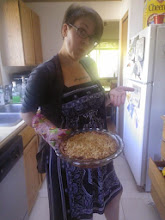Dear Mr. President,
Reading about you and your father is difficult for me, as it reminds me of my relationship with my own father, which I have conducted without your grace or self-awareness. I was raised by women, scolded and shaped as a person by my mother, my grandmother, my sisters and by the wisdom of so many teachers. My father lingers as a specter in my memory, not absent, at first, but certainly not present. Men in my early life were large and loud, they lived in comfortable chairs in front of the TV; set dressing for the defined, complex female characters to interact with. Men were manifestations of will, their anger hung in the room like a cloud, their favor elated me, their participation in activities or conversation lent importance and gravity. I grew up never resenting this, playing with the boys at recess and having slumber parties with the girls, never concerning myself with the differences in roles that were so obvious in adults.
You arrived in New York with your father's letter, full of the instructions to find your place that you, at the time, found inadequate. I read this and cast about in my memory for what "dime store advice" my father had sent me into the world with, and I can recall none. Instead, I enter the world fearing men, while at the same time searching each one for the unconditional love I feel is somehow owed to me still. (I'm sure even the most casual student of psychology would cite writing to you as a manifestation of this absence, as well.)
I've grown up in an age where "feminist" has, unfortunately, come to mean something militant, angry, inherently anti-man and, by extension, anti-traditional woman, as well. I grew to consider myself a feminist without ever feeling comfortable with the connotations, aware of the inherent sexism in many aspects of our society, but unwilling or unable to offer any practical alternative. When the nomination race for the 2008 election began, I initially supported John Edwards, as I'd been impressed after meeting him at a book signing, and excited by his proposal to forgive student loan debt. (The subject of another letter, but certainly a proposal worth considering.) After the race narrowed to just you & Mrs. Clinton, I read the Op-Ed that Gloria Steinem wrote in support of Clinton and felt, (as I'm sure Steinem intended,) that it was almost traitorous for me, as a feminist, not to support Clinton. This was a fleeting feeling, as I found myself drawn to the tone of your campaign, unimpressed with her tactics, and generally reluctant to support a candidate with her unconditional-to-the-point-of-unreasonable support for Israel. Did this make me bad feminist? Did I owe it to generations of suffragists to submit to the higher calling of electing a female president? Or did they, in fact, struggle to free me from this?
Sometimes it seems like life is a series of conflicts, falsely characterized as Good vs. Evil. Men vs. Women. Black vs. White. Republican vs. Democrat. Christianity vs. Islam. As I've matured, I've learned to reject these teams as constructions, attempts to unconditionally divide me from some people and bind me to others. These teams are safe, easy, even, at times, expedient. There are days when it still feels like a game, interacting with men, playing by their rules, striving for the approval or love that they define and they control. But I don't think that this applies all men.
Today I watched my nephew, who is one and a half, and the first male baby to be born in my immediate family. He, too, has spent his early life being raised by women, women like me, who lack a clear idea of what a good man is. Are we equipped to raise this child alone? Can we give him enough examples of who he wants to become? Luckily, he has a caring and responsible father figure, recently introduced, but happy and eager to show little Asher what a good man is. I am so grateful for him, and for the number of positive male influences I have had throughout my life. This gratitude reminds me to check my sweeping characterizations of gender, or my fear of a passing male figure on the street at night, reminds me to judge people as individuals and not as reflections of or upon any larger group.
On my arm, I have a few lines by Elizabeth Cady Stanton; "in that solemn solitude of self, that links us with the immeasurable and the eternal, each soul lives alone, forever." She spoke about self-reliance, about not ceding our ability to defend or support ourselves to any other, not because they cannot always be trusted, but because they cannot always be there to protect us. Not our parents, or our mates, or our families, or even our government. Learning to reconcile this self-reliance with the companionship we all need is where life gets difficult and complicated. You, sir, are a role model for my nephew, a figure I hope he one day aspires to be like, not because you are the perfect mythological figure of Manhood, but because you have reconciled the power of your position with the humanity that limits us all. Thank you, for that.
Respectfully yours,
Kelsey
Thursday, January 7, 2010
Subscribe to:
Post Comments (Atom)




No comments:
Post a Comment